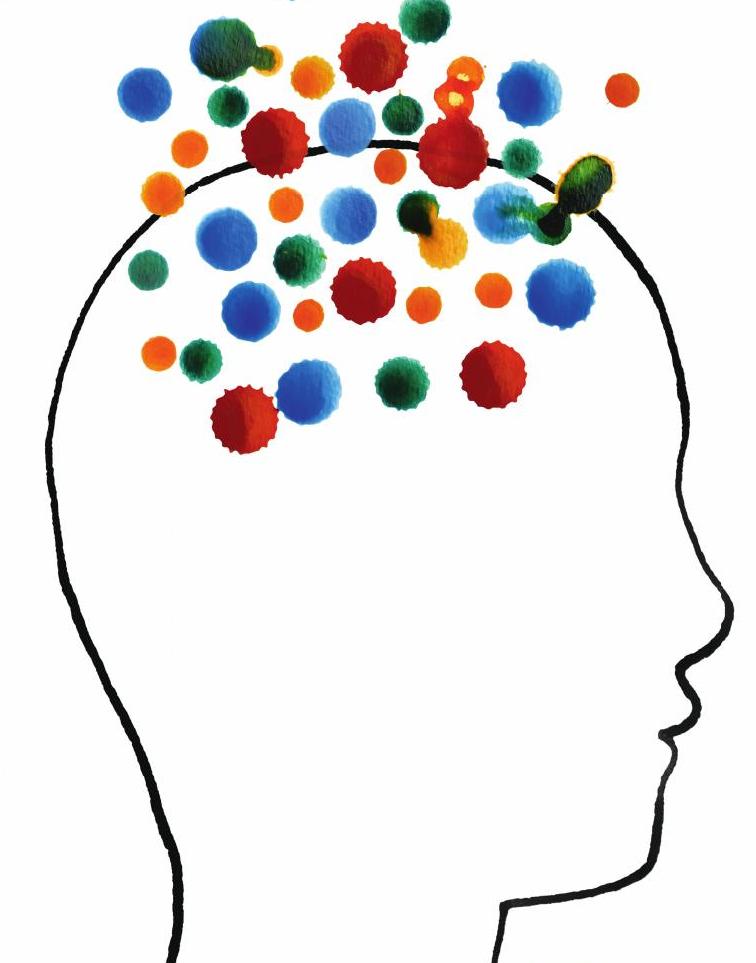Prøve GULL - Gratis
A state of mind The truth about neurodiversity
The Guardian Weekly
|June 07, 2024
Growing understanding of ADHD and autism has led to an increase in diagnosis. We look at the science helping to improve people’s lives

It was in the mid 90s that neurodiversity as a formal concept and a rights movement began to emerge. Aided by the internet, autistic people and those with other conditions were able to connect and began sharing their experiences: what they had in common, how their lives differed.
A recurring theme was how many felt marginalised, pushed out of a society that embraced only typical ways of being in the world. The phrase "neurological diversity" cropped up in their discussions, which along with "neurodiversity" appeared in magazine articles later that decade.
Neurodiversity has clear parallels with biodiversity. It champions difference and the validity of individuals. It holds that a vaguely defined majority can be described as neurotypical, with brains that operate in a broadly similar way. Others, meanwhile, are neurodivergent, with brains that are built and work somewhat differently.
Neurodivergent people may be diagnosed with a range of conditions, and many co-occur in the same individual. There is no definitive list, but autism (and what was once known as Asperger's syndrome) and attention deficit hyperactivity disorder (ADHD) are common, as are dyslexia, a learning difficulty that affects reading and writing, and dyspraxia, which manifests as difficulties in movement and coordination.
As a concept and a movement, neurodiversity is reshaping thinking in science, social science and medicine. Neurodivergent people are more involved in the research and in the language used to describe them. Questions are being asked about research priorities, ethics and whether studies really benefit neurodivergent people.
Denne historien er fra June 07, 2024-utgaven av The Guardian Weekly.
Abonner på Magzter GOLD for å få tilgang til tusenvis av kuraterte premiumhistorier og over 9000 magasiner og aviser.
Allerede abonnent? Logg på
FLERE HISTORIER FRA The Guardian Weekly

The Guardian Weekly
ASSAULT ON THE SMITHSONIAN
Donald Trump has vowed to kill off 'woke' culture in his second term, and a major institution a few blocks from the White House is in his sights
16 mins
January 16, 2026

The Guardian Weekly
'Add blood, forced smile' How Grok's nudification AI tool went viral
A trend for the chatbot to alter pictures to show women in bikinis spiralled into hundreds of thousands of requests to create fake sexualised images, horrifying those targeted
5 mins
January 16, 2026
The Guardian Weekly
Two horrifying truths have been disclosed by a lying president
For a serial liar, Donald Trump can be bracingly honest. We've known about the mendacity for years - consider the 30,573 documented falsehoods from the president's first term, culminating in the big lie, his claim to have won the 2020 election - but the examples of bracing candour are fresher. Last week both began and ended with the US president speaking the shocking truth.
4 mins
January 16, 2026

The Guardian Weekly
Jude Law's Putin sent from Russia with love
Is a new film portrayal of the autocrat as a James Bond-like strategist merely swallowing Kremlin myths?
3 mins
January 16, 2026
The Guardian Weekly
The city of noodles fights for the crown
The road to ramen paradise ends in the unlikeliest of places. At Men Endo, located in a suburban street, next to a school and a low-rise apartment block, bowls of noodles disappear in a flurry of slurps, gulps and hurried but heartfelt exchanges of appreciation between customers and chefs.
3 mins
January 16, 2026
The Guardian Weekly
Rhetoric risks repeating Warsaw Pact mistakes
Donald Trump's echoing of Russia's talking points in its war against Ukraine has long been a cause for alarm and dismay in the west.
2 mins
January 16, 2026

The Guardian Weekly
Europe's options What can the EU do to counter Trump's designs on Greenland?
Diplomacy and Arctic security European governments, led by Denmark's ambassador to the US, Jesper Møller Sørensen, and Greenland's envoy, Jacob Isbosethsen, have been lobbying US lawmakers to talk Trump out of his territorial ambitions for the island.
2 mins
January 16, 2026
The Guardian Weekly
China first? Carney looks to mend broken ties with Beijing
As trade war with Washington takes its toll, Canada’s PM seeks to restore fractured relationship with China
3 mins
January 16, 2026

The Guardian Weekly
As the bombs fell, my family planted hope in a garden in Gaza
My 12-year-old brother Mazen ran into the kitchen, shouting that the aubergines were sprouting. He held up the tiny green shoots, his hands shaking. My older brother Mohammed and I rushed outside, laughing despite the fear that had become our constant companion.
2 mins
January 16, 2026

The Guardian Weekly
Can Havana's bond with Venezuela survive Trump?
On Havana's Fifth Avenue, where the trees and lawns remain groomed even as the rest of Cuba wilts, a billboard outside the Venezuelan embassy reads: “Hasta Siempre Comandante” (Until For Ever, Commander) next to a vast picture of a smiling Hugo Chávez.
3 mins
January 16, 2026
Listen
Translate
Change font size

